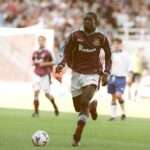While it’s true that basketball games are often won or lost based on defensive performance and free throw shooting, the real key to success on the court is in paying attention to the details. That’s why it’s no secret that the best coaches and teams work hard to get the details right as often as possible. This guide will cover a handful of the little things that players can focus on to take their games and teams to the next level.
Preparation
Good players and teams know that theymust prepare to play. Preparation means having a high level of familiarity with both teams involved. Here are just a few things that good teams/players do to prepare:
- Study the opposition: Know the other team’s hot scorers, go-to offensive and defensive formations, and situational tendencies.
- Know the defensive assignment: Each player needs to know his responsibility on defense, as well as the responsibilities of the other four defenders.
- Know the offensive game plan: Just like with the defensive assignments, each player should know both their own offensive duties and those of each of their teammates.
- Be mentally prepared to give 100 percent effort: The more work you do beforehand, the easier it will be to give it your all during a game.
Being prepared also means taking pre-game warm-ups seriously. Players should use the time before games to stretch, knock down shots, and attack the basket in lay-up drills. It’s surprising how many players fail to take advantage of pre-game warm-ups to get physically and mentally ready to play.
Attitude
Players are often judged not merely by talent and experience, but also by their attitudes both on and off the court. Players who have a positive attitude — regardless of how the game is going — help their teammates stay positive.
It’s sometimes possible to tell which team is used to success simply by watching the attitudes of the players. Successful teams have players who:
- Cheer for their teammates
- Hustle to and from the bench during substitutions
- Pay attention to coaches during timeouts
- Encourage teammates when they’re struggling
- Play hard regardless of the score
It’s difficult for many young players to see the connection between player attitude and team performance. But a positive attitude on the basketball court is much like a positive attitude in life: It tends to produce successful results.
Rebounding
For most coaches, the biggest ‘little’ thing in basketball is rebounding. Every team must have the goal of limiting the opponent to one shot per offensive effort. This means each player consistently attacks the basket, blocks out, and secures rebounds with two hands.
Players that go for rebounds with one hand, or approach with lazy footwork, will eventually commit a silly turnover or unnecessary foul. In close games, these small moments can decide the outcome.
Many coaches teach players to chin the rebound, meaning that they put the ball in a vice grip with both hands firmly on the ball beneath the chin, and elbows out. This is a good way to prevent careless rebound attempts.
Taking Care of the Ball
Much like maintaining a positive attitude, it’s vital that players not take any possession for granted, and concentrate on creating a good shot opportunity with each offensive effort. This mentality manifests itself in several different ways:
- Making strong passes: Strong passes are easy to catch and let the receiver quickly move into triple-threat position. A simple, effective pass is almost always better than a fancy one.
- Using picks and screens: Though they’re not as flashy as other maneuvers, picks and screens are formidable offensive tools when executed properly. They should always be practiced in drills and scrimmages until setting and using them becomes second-nature.
- Avoiding turnovers: Turnovers that come from poor decisions — like traveling, or dribbling recklessly into traffic — should never happen.
- No offensive fouls: Violations such as 3-second calls or charging fouls are the product of lapses in concentration or lack of preparation.
- Taking good shots: Good shots are high percentage ones, by players who are accustomed to taking them. They’re expected by teammates, who are in position to grab an offensive rebound.
Taking care of the ball is also about working together as a team. Individual players who don’t pass or play according to the team’s offensive strategy make it harder for the rest of the team to contribute.
Hustle
Successful teams consist of players who hustle everywhere on the floor, sprinting to get open and diving for loose balls. Such players seem to have hustle in their DNA; those who don’t usually find a quick seat on the bench.
This quality is especially important when transitioning from offense to defense. Defensive effort is the great equalizer in basketball; it’s not uncommon for a less-skilled team to beat a better one because of lopsided defensive intensity. Such wins have little to do with talent, and almost everything to do with desire.
The Next Level
As players ascend in levels of competition, the differences between success and failure grow smaller and smaller. In the highest levels of competitive basketball, success is not about talent — it’s about having the desire to get the little things right. Any player with the goal of reaching the highest levels of basketball must commit himself to mastering the little things in basketball and in life. Success will certainly follow.



